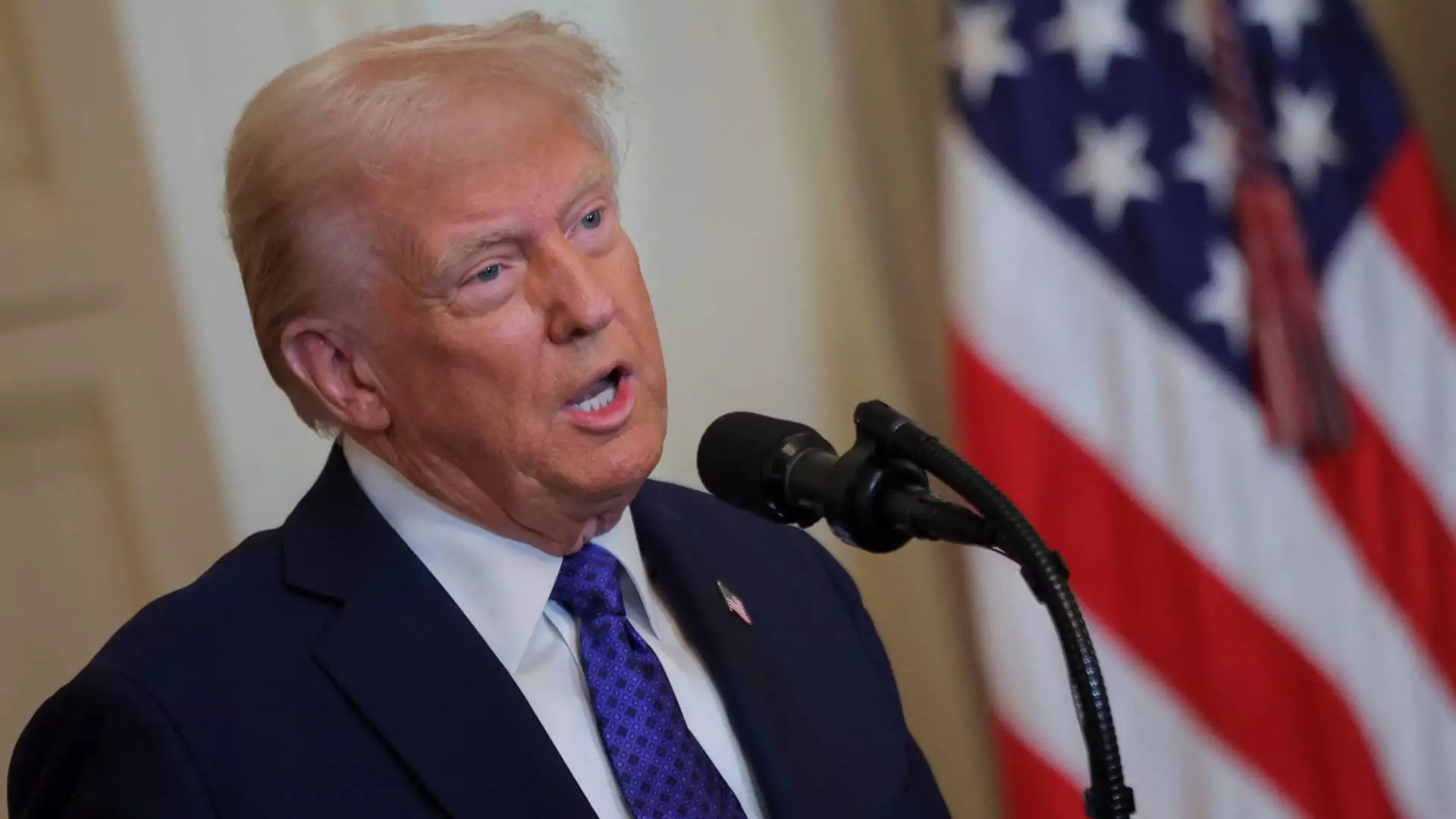The financial markets continuously navigate the shifting winds of political changes, particularly when it comes to policies that directly impact economic growth. The Trump administration, noted for its deregulation and pro-business stance, has triggered notable reactions within two distinct segments of the market: big banks and small-cap stocks. Understanding how these segments interact with political developments provides valuable insight for investors seeking to maximize their portfolios.
Big Banks: Beneficiaries of Deregulation
The current landscape reveals that the banking sector has emerged as a significant winner under the policies of the Trump administration. Economic analysts, including John Davi of Astoria Portfolio Advisors, foresee a long-term strength for financial firms, fueled primarily by deregulation. These anticipated changes are likely to facilitate an environment ripe for Initial Public Offerings (IPOs) and increased mergers and acquisitions, fostering enhanced market activity. This trend is particularly pronounced among large-cap money center banks like Goldman Sachs, JPMorgan Chase, and Bank of America.
Prior to the Trump administration’s ascension, these banks were already presenting a compelling investment case from an earnings perspective. The post-election surge has only intensified this prospect, evidenced by recent all-time highs in their share prices. Such performance suggests that large-cap banks may continue attracting investor interest. Davi’s recommendation of the Invesco KBW Bank ETF, which features heavyweights from the sector, resonates strongly with those looking to capitalize on this momentum. The ETF’s remarkable return of nearly 10% year-to-date and an impressive 49% rise over the past year underscores the potential for sustained growth in large-bank investments.
In contrast to large banks, small-cap stocks are emerging under the Trump administration as another attractive investment avenue, albeit for entirely different reasons. With a focus on reshoring and the challenges posed by tariffs, small-cap companies—typically less exposed to global economic fluctuations—may benefit significantly from a renewed emphasis on domestic production. Todd Rosenbluth from VettaFi indicates that as the U.S. strengthens its economic stance, small-cap firms that predominantly operate within the domestic market stand to gain.
Investors seeking to tap into this burgeoning opportunity can look toward specific ETFs that emphasize small and mid-cap stocks. For instance, the T. Rowe Price Small-Mid Cap ETF and the Neuberger Berman Small-Mid Cap ETF represent solid choices, catering to companies that align with the evolving economic landscape. Additionally, the VictoryShares Small Cap Free Cash Flow ETF not only focuses on quality small-cap stocks but strategically targets those with high free cash flow. This ETF emphasizes sound financial health along with growth potential, representing a hybrid model that is gaining traction in today’s market.
Rosenbluth highlights that the VictoryShares ETF has seen gains of approximately 10% over the past year, even as the Russell 2000 index—a benchmark for small-cap stocks—posts a commendable 17% increase. These figures indicate a growing confidence among investors in the resilience and adaptability of small-cap firms amidst evolving market conditions.
The Trump administration has set the stage for dynamic changes within the financial markets, presenting distinct opportunities across various sectors. While large-cap banks capitalize on deregulation and increasing market activity, small-cap companies are likely to thrive under a domestic-focused economic agenda. This divergence underscores the multifaceted nature of investment strategies in a politically charged environment.
As investors navigate their choices, it is essential to evaluate each segment’s unique characteristics and potential. The contrasting prospects of big banks and small-cap stocks illustrate the complexities of market dynamics influenced by both economic policies and global realities. Ultimately, staying informed and strategically aligned with these trends will be crucial for anyone looking to enhance their investment portfolio in today’s ever-changing landscape.

